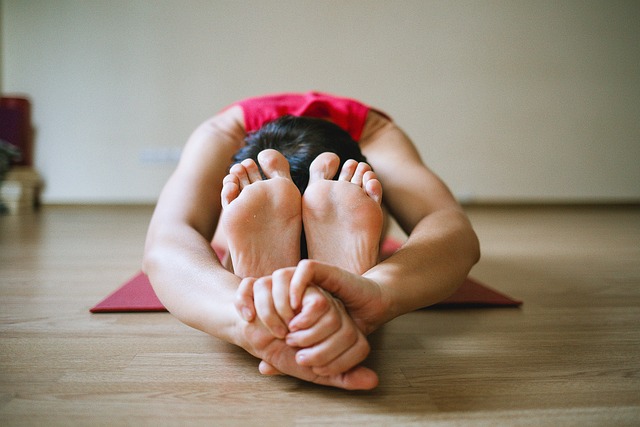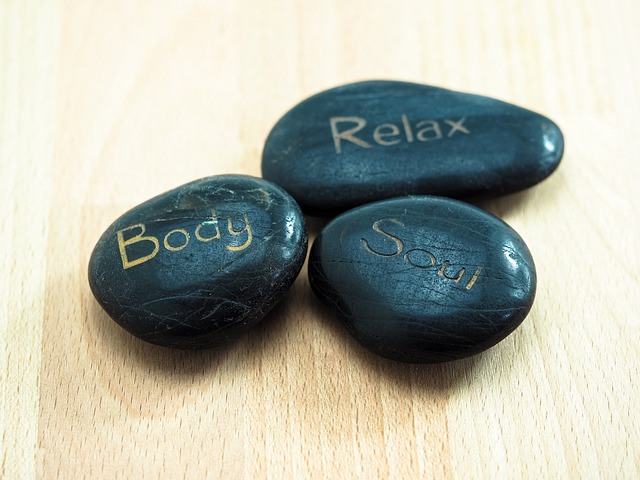Aromatherapy, an ancient practice using plant-derived essential oils, is a modern trend for relaxation and emotional balance. By integrating scent-based therapy into daily rituals, individuals can reconnect with nature and achieve tranquility through tailored oil blends. Essential oils like lavender for calmness or citrus for energy enhance self-care routines, cultivating mindfulness and creating sanctuaries within everyday environments. Effective self-care involves decluttering spaces, using natural lighting, incorporating sensory elements like aromatherapy, and adding calming artwork or plants to foster mental well-being.
“Unwind and embrace a holistic approach to well-being with aromatherapy—a powerful tool for relaxation and mood enhancement. This practice, rooted in ancient traditions, harnesses the healing properties of essential oils to create a sensory experience that calms the mind and soothes the body.
In this comprehensive guide, we’ll explore how incorporating aromatherapy into your self-care routines can transform your daily rituals. From understanding the science behind scent and its impact on our emotions to discovering the best essential oils for stress relief and mood elevation, get ready to unlock a serene sanctuary within.”
- Understanding Aromatherapy: Unlocking the Power of Scent
- Incorporating Aromatherapy into Your Self-Care Routines
- Essential Oils for Relaxation and Mood Enhancement
- Creating a Calming Environment: Tips and Tricks
Understanding Aromatherapy: Unlocking the Power of Scent

Aromatherapy, an ancient practice rooted in the use of essential oils derived from plants, has gained modern popularity for its profound effects on relaxation and emotional well-being. By harnessing the power of scent, this holistic therapy offers a natural way to enhance self-care routines. Each essential oil carries unique properties that can influence mood, reduce stress, and promote overall mental clarity.
The art of aromatherapy involves careful selection and combination of these oils to create therapeutic blends tailored to individual needs. Whether it’s lavender for its calming effects or citrus scents for uplifting the spirits, the practice unlocks a sensory experience that transcends mere smell. Incorporating aromatherapy into daily rituals allows individuals to reconnect with nature, find tranquility, and nurture their mental health as part of a comprehensive self-care regimen.
Incorporating Aromatherapy into Your Self-Care Routines

Incorporating aromatherapy into your self-care routines can be a game-changer for achieving relaxation and enhancing your mood. Start by selecting essential oils that resonate with your personal preferences and desired outcomes, whether it’s lavender for calmness or citrus for uplifting energy. Integrate these oils into your daily practices—a few drops in a diffuser during meditation, a warm bath infused with aromatic salts, or even a topical application mixed with a carrier oil for a sensory massage.
Regularly dedicating time to aromatherapy not only promotes mental well-being but also cultivates a mindful self-care practice. It’s an accessible and powerful tool that allows you to connect with your senses, find solace in the present moment, and create a sanctuary within your everyday environment.
Essential Oils for Relaxation and Mood Enhancement

In the realm of self-care routines, essential oils stand out as powerful tools for relaxation and mood enhancement. These concentrated plant extracts offer a natural and aromatic way to unwind and elevate your spirits. Lavender, for example, is renowned for its calming effects, helping to reduce stress and promote peaceful sleep. A few drops in an diffuser or a warm bath can instantly transform your space into a soothing oasis.
Another popular choice, eucalyptus oil, not only freshens the air but also improves mental clarity and boosts mood. Its invigorating scent can energize your senses and enhance focus, making it ideal for morning routines. Additionally, oils like lemon and grapefruit have uplifting properties, known to brighten one’s day and improve overall well-being when incorporated into daily self-care rituals.
Creating a Calming Environment: Tips and Tricks

Creating a calming environment is an essential part of establishing effective self-care routines, especially when incorporating aromatherapy for relaxation and mood enhancement. Start by decluttering your space to reduce mental clutter. Clean, organized areas can significantly contribute to a sense of tranquility. Consider using natural lighting during the day, as it improves mood and energy levels, while warm, soft lighting in the evening can signal to your body that it’s time to relax.
Add elements that engage your senses—aromatherapy is a powerful tool here. Diffuse essential oils known for their calming properties, such as lavender or chamomile, to fill your space with soothing fragrances. Incorporate textures like soft fabrics, cozy throws, or natural materials like wood and stone to create a sense of warmth and comfort. Visuals can also be impactful; hang artwork that inspires peace or place plants in your living areas to bring a touch of nature indoors.
Aromatherapy offers a natural and effective way to enhance relaxation and improve mood, integrating seamlessly into our self-care routines. By understanding the power of scent and choosing the right essential oils, we can create a calming environment that supports our overall well-being. Incorporating these practices into our daily lives allows us to unwind, rejuvenate, and cultivate a sense of tranquility, making aromatherapy an invaluable tool for optimal mental and physical health.
